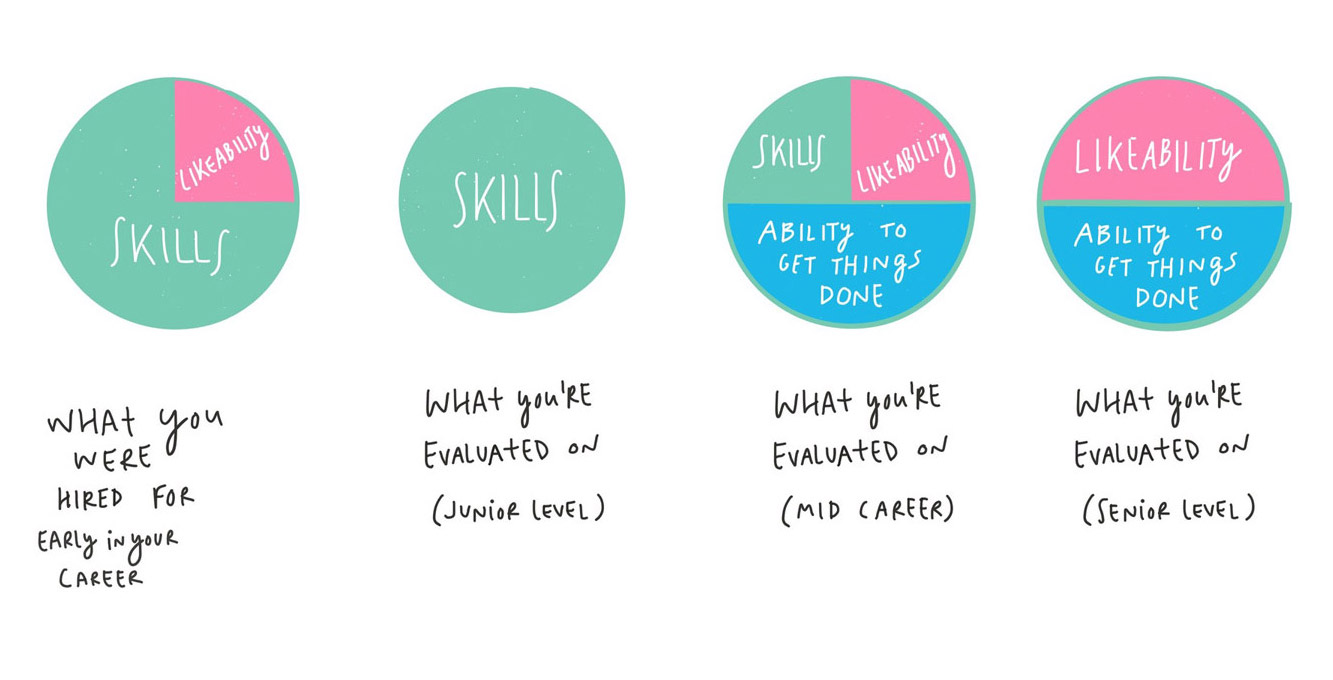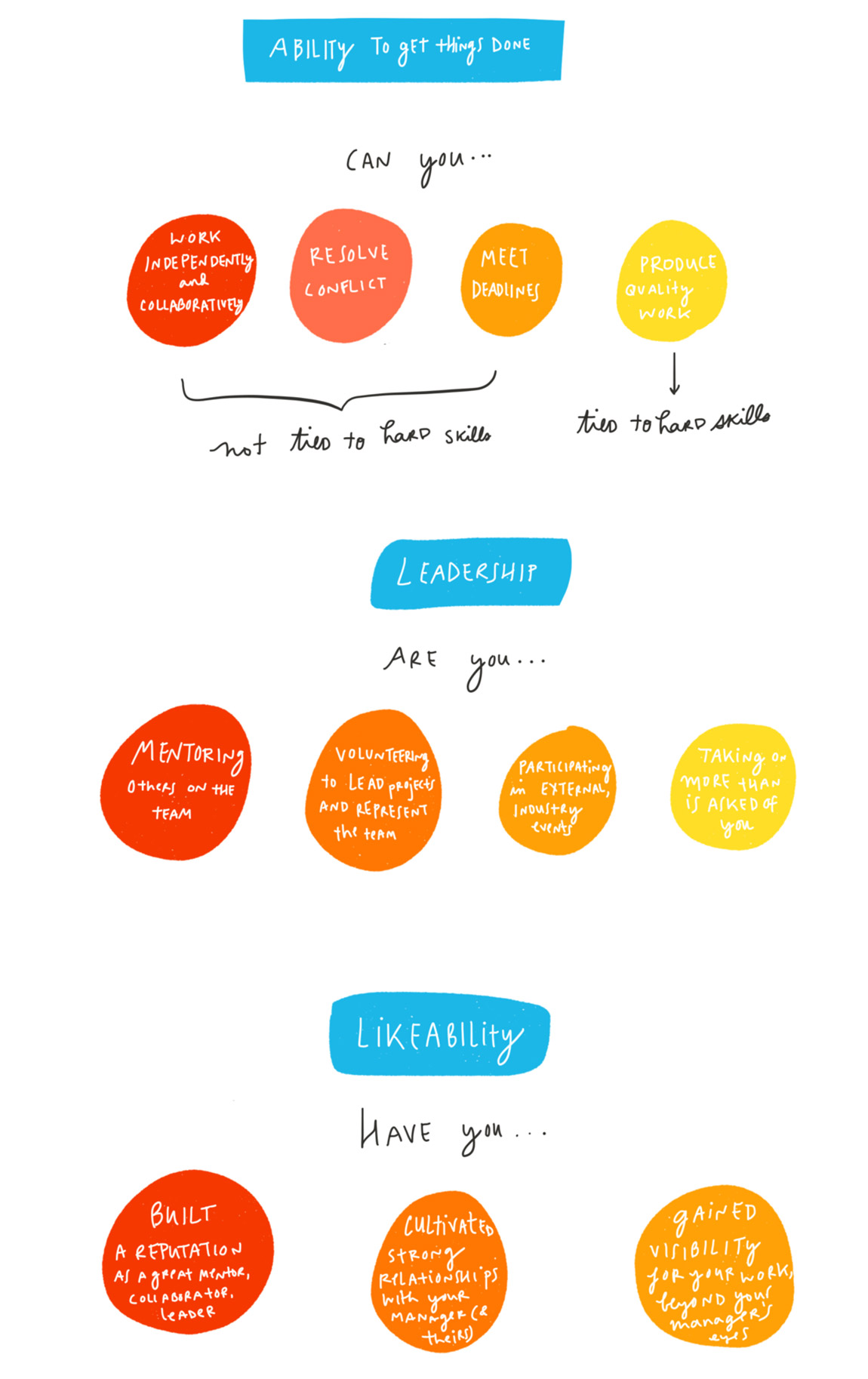As the marketplace changes faster than ever before, organizations and their brands are attempting to reinvent themselves to stay relevant – before their competitors pass them by. The speed of change also makes you more accountable for the choices you make to survive and thrive in a workplace that is testing your overall contributions every day – made all the more difficult asthe playbook for success and eventual significance is constantly being reconfigured and redefined.

Don’t wait; Seize the opportunity and be courageous enough to take action. Regardless of the outcome, you are earning respect and learning along the way. If failure is not an option, you are working for the wrong employer.
Every day at work you are faced with choices – not always easy whenpolitically charged with the hidden agendas of others. Let’s face it, you are trying to figure out how to best fit in and get discovered. You realize that to advance in your career, how others perceive you must be in alignment with the expectations you can be counted upon to consistently deliver.
To stay in control of what others are saying about you, you must always reflect the identity you seek to establish for yourself within the organization you serve. This means that you must be ever mindful of your unique differences and perspectives and how they can be best leveraged by the leaders and colleagues throughout your organization. In the new world of work – where everyone is attempting to establish themselves at a time when people are more uncertain about the future – you must take accountability for yourself.
To ensure you stay on track towards building the momentum you seek to achieve success in your career, here are five choices you must make every day at work – that can make or break your future.
1. Do You Consistently Over Deliver?
It’s no longer enough to do your job – that is, using your job description as the basis for your responsibilities and deliverables. In today’s workplace, you must overdeliver and define new standards and metrics for success. Overdelivering is not just about performing your primary job duties/functions, but abouthelping others do theirs too – well beyond the obvious. Overdelivering means being active and visible well beyond the job – by participating in corporate social responsibility, community outreach goals, etc.
If you are only doing what you believe others expect from you – challenge yourself to find new ways to do things better. Never be predictable. Consistently overdeliver and keep others on their toes. Allow your influence to propel others to equally over deliver.
Like this Article ? Share It ! You now can easily enjoy/follow/share Today our Award Winning Articles/Blogs with Now Over 2.5 Million Growing Participates Worldwide in our various Social Media formats below:
FSC LinkedIn Network: (Over 15K+ Members & Growing !) www.linkedin.com/in/frankfsc/en
Facebook: (over 12K) http://www.facebook.com/pages/First-Sun-Consulting-LLC-Outplacement-Services/213542315355343?sk=wall
educate/collaborate/network….Look forward to your Participation !
Continue of article:
2. Do You Hold Your Boss Accountable?
I am not referring to what many people call “managing up.” Holding your boss accountable in this case is more about making sure that he or she is pushing you and providing you the guidance to ensure you reach your full potential. This is what a leader or boss is ultimately responsible to do. Unfortunately, not many leaders are good at this – if they are more interested in themselves rather than advancing themselves by serving others.
In an assessment by my organization, we asked leaders if they are vulnerable with their employees and/or colleagues; 69% of leaders said that they were vulnerable only “sometimes.” The question is intended to reveal if leaders actually know that it is in their best interest to be vulnerable if they are going to make others feel safe to speak-up; to share their ideas and ideals. Unfortunately, vulnerability has been associated for much too long as a weakness or as exposing one’s limitations.
Truth be told that in today’s workplace, everyone is in search of answers – new, fresh ways of doing things – and if we can’t be vulnerable, how can we solve for problems together; if we are not aware of our opportunity gaps, how can we be more efficient and effective. This is how we will eventually be able to discover the full potential in one another – and the business we serve.
3. Do You Strive To Be More Inclusive?
Being inclusive means that you must be more open-minded to fresh perspectives, new approaches and opinions. Make the smart choice of getting out of your comfort zone, be more curious and make room for diversity of thought. It’s no longer about what you know, but what you do with what you know. We live in a wisdom-based economy and your ability to bring the right people into the right conversations – to see beyond one’s job title and job description – is an absolute must.
In the previously mentioned assessment, we also asked leaders if they embrace diversity of thought and utilize one’s individual strengths. When 72% of respondents said – “always” – I became conflicted with the validity of this answer, especially when 69% of these same respondents said that they were “sometimes” vulnerable with their employees.
If your leaders are not leading by example – don’t wait – activate yourself to do what is required given that the workplace is more diverse than ever before. Give yourself the room to welcome differences in thought and accept this one important fact: we all desire similar things – we just have unique options; pathways to choose from.Never minimize the thinking of others – embrace it and learn to get more comfortable being more inclusive.
4. Do You Establish Your Identity?
Take ownership of your identity and don’t allow others to define it for you. Stop battling the gulf between assimilation and authenticity. Forget about what others want you to be and establish your own identity at work; don’t ask permission to be your most authentic self. Everyone has distinction and this is what allows you to be original. But distinction is hard when you feel that you need to be someone that you are not. This is why originality is hard to find. People spend too much time mimicking others. Be courageous enough to live your identity – and equally encourage others to do the same.
5. Do You Close Opportunity Gaps?
It’s easy to point fingers at others when problems rise to the surface that you are ultimately responsible for handling. Unfortunately, too many people complain when problems arise rather than try to find alternative solutions. These are the people that don’t commit to the aforementioned four points.
When you see (identify) opportunity gaps, immediately find ways to seize (close) them. As a responsible employee, your gut tells you to take action when faced with adversity. But unfortunately, more often than not, you don’t;instead you wait for those around you to take the calculated risks that you were hesitant to take yourself.
Don’t wait; seize the opportunity and be courageous enough to take action. Regardless of the outcome, you are earning respect and learning along the way. If failure is not an option, you are working for the wrong employer. You must be given room to fail during a time when no one has all the answers. We are all experiencing on the job training. Don’t forget that risk is created for the organization that allows opportunity gaps to widen. Close the gaps before circumstances force your hand. And when that happens – everyone loses – including yourself.
Leaders want employees that take ownership; that are proactive and recognize the importance of working smart for the betterment of a healthy whole. Make these five critical choices and live them every day at work, as a first step to taking ownership and accountability for your success, that of others, and the organization you serve. Don’t let the rapidly changing marketplace pass you by because you didn’t see and seize the opportunity to evolve with it.
Follow me @GlennLlopis. Join our LinkedIn group here.
Forbes.com | May 9, 2016 | Glenn Llopis






